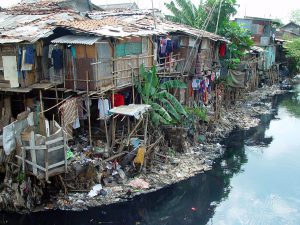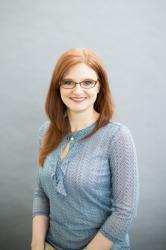
My head is swimming with thoughts, my heart filled with emotion, and my coffee is getting cold next to me. I opened my social media this morning and no matter where I go, all my feeds are bursting with news of violations of human rights and dignity taking place in all corners of the globe – far away and right next door. And the anger, and the shouting, and the blame so frequently drowns out the cries of the suffering.
Headlines and hashtags abound. Families are being torn apart: #familiesbelongtogether or it’s their fault for breaking laws. Racism and hatred divides: #blacklivesmatter or #bluelivesmatter. Government oppression, the murder of innocent civilians, and restriction of basic human rights and freedoms in Venezuela, Nicaragua, DRC, Egypt, North Korea, and sadly so many more countries.
All of these stories elicit strong reactions and emotions – sorrow, anger, blame, frustration, pity, gratitude for my own blessings, and guilt. What can I possibly do? I see the problems but what are the solutions? Is it #socialism – the cry of so many millennials? What can I possibly do?
Along with 1,100 others, I have been attending Acton University this week and have been inspired by so many of the speakers and attendees. María Corina Machado (@MariaCorinaYA), a leading figure in the Venezuelan fight for freedom, gave a plenary interview on Tuesday night via Skype (her passport having been confiscated). She passionately spoke about the legacy of Socialism – the starvation, poverty, and violence that has caused four million Venezuelans to flee their country. Paraphrasing one key point – the crisis in Venezuela (and many other Populist and Socialist countries) isn’t merely economic, it’s existential.
In his Wednesday morning lecture on “Theories of Race”, Ismael Hernandez spoke with eloquence and compassion about the importance of viewing every person through a personalist framework – each created as a unique individual with value and equal dignity. In opposition to this approach is a matrix that focuses on power, separation, and collective identity, guilt, and victimization with roots in Marxist ideology that fundamentally misunderstands the human person.
Ideas have consequences – but what can I possibly do?
Three pieces of practical advice for anyone who encounters violence and tragedy:
- Be thoughtful and pray. Don’t immediately jump on the bandwagon and shout your ideas into the void. Take a breath and consider what is truly happening, what are the root causes of this situation? And, most importantly, pray for your brothers and sisters who are suffering – publicly and privately – next door and across the ocean.
- Educate yourself. If ideas have consequences, then immersing yourself in the right ideas can create a ripple effect that can extend from your words and actions. Acton, along with many other institutions, provide excellent resources that clearly and concisely explain the true nature of the human person and the foundations of a free society that promotes human flourishing. A few such examples are Foundations of a Free & Virtuous Society by Dylan Pahman, forward by Samuel Gregg; Not Tragically Colored by Ismael Hernandez, forward by Michael Novak; Poverty, Inc.
- Contribute your resources and gifts. As you are able, contribute your time, treasure, or talents to reliable support organizations that ensure their effectiveness, not merely their affective intentions. Have a heart and mind that serves the world’s suffering.
Everyone has an innate desire for the freedom to flourish; nobody seeks oppression. The problems are big, individually we are small, but together – with the right tools and ideas – there is something I can do.

